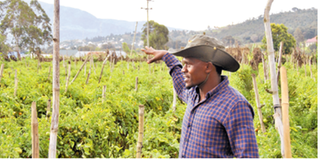Tanzania can boost its disease prevention efforts by reviving her food safety control system

By Martin Epafras Kimanya & Stella Kimambo
Every year, approximately 600 million (nearly one in 10) people worldwide become fall ill after eating contaminated, with 420 000 dying as a result. One-third (137,000) of these deaths occur in Africa.
Chemical agents such mycotoxins and pesticide residues, biological agents such as vibrio cholera bacteria and entamoeba parasites, and physical agents such as broken glass and stones can all make food unsafe.
Food safety is a major determinant of human health. Access to safe food is a basic human right.
The Food and Agriculture Organization of the United Nations (FAO) and the World Health Organization (WHO) advise governments to implement policies and other measures to ensure food safety.
Food safety ensures that all the hazards, whether chronic or acute, that may cause food to be harmful to the consumer’s have been controlled.
The measures include Good Agricultural Practices (GAPs – typically administered by ministries responsible for agriculture), good animal husbandry practices (GAHPs – typically administered by ministries responsible for livestock), good manufacturing practices (GMPs – typically governed by ministries responsible for industries and trade), good hygiene practices (GHPs – typically governed by ministries responsible for local government authorities); and relevant legislation (policies, laws, regulations and standards).
In Tanzania, the ministry responsible for trade, through the Standards Act, is mandated to control food safety issues.
Unfortunately, the Standards Act does not include the infrastructure (particularly a multisectoral committee) needed for effective coordination of food safety and quality services (other than food standards setting).
Food services are unavoidably provided by ministries responsible for agriculture, livestock, fisheries, health and local government authorities under the current agreement. Food safety control involves a wide range of activities that cannot be adequately implemented by the current food safety governance, we are convinced that Tanzania requires a separate institution solely dedicated to the coordination of food safety activities.
Tanzania is urged to adopt the FAO and WHO recommendations to improve coordination of food safety control services in the country.
Tanzania is urged to develop a comprehensive food safety law and The Tanzania Food (Control of Quality) Act 10 of 1978 is an example of such a comprehensive food safety law.
The Author is the Associate Professor of Food safety and Nutrition Sciences at the Nelson Mandela African Institution of Science and Technology (NM-AIST), Arusha – Tanzania and Food Security and Nutrition Specialist- FAO Tanzania


